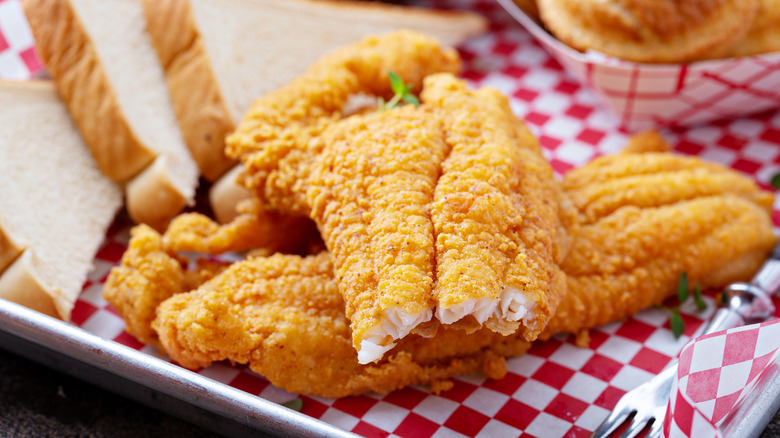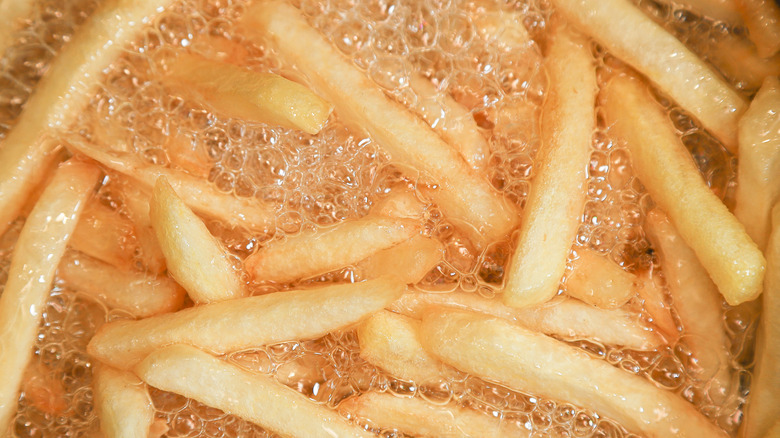Should You Ever Reuse Frying Oil?
No matter what health experts say, they will never get me to stop eating fried food. Deep-frying makes all the best dishes — the crispiest fries, the crunchiest chicken wings, and the sweetest, fluffiest donuts. For me, amazing flavor always outweighs nutrition advice.
The one thing that might make me skip a deep-fried delicacy, however, is the amount of work they take to make at home — although there are plenty of clever hacks, like using chopsticks to test your oil temperature or removing excess moisture from foods before cooking, to help you up your deep-frying game. One thing that's hard to get around though, is the amount of oil that gets wasted when frying a single batch of snacks. Whether you're using vegetable, peanut, or sunflower oil, it is not cheap to pick up a bottle at the store just to toss half of it out after one use. If only there were a way to save your frying oil and recycle it. Surely cooking just one lonely basket of french fries won't spoil the whole pot? Thankfully, you can stretch your dollar further and reuse your frying oil.
How to reuse frying oil
Reusing your frying oil comes with major rewards in terms of saving money. However, it is important to treat your oil properly to get the most out of it. After frying anything, you will likely notice some food debris left behind in the pot. Try to remove all these particles as they can potentially burn if the oil is heated again, giving food a bitter taste. Once the oil has cooled down, you can pour it through a fine mesh strainer or coffee filter to remove crumbs. You can then funnel your clean oil back into its original container.
The type of food you fry also affects how long your oil lasts. Foods fried in wet batter, such as donuts or funnel cake, won't leave many remnants in your oil. (For smooth tempura batter, the best frying choice is sesame seed oil to give it that light, crispy bite.) However, foods rolled in breadcrumbs will produce more particles that need to be filtered out. Meat will affect your oil the most and cause it to go bad faster. This is because many proteins contain natural fats that melt when heated and mingle with the liquid in the fryer. Fish can also leave a lingering flavor in oil, which can alter the taste of anything refried in it. This is why some restaurants often have a separate fryer for seafood.

